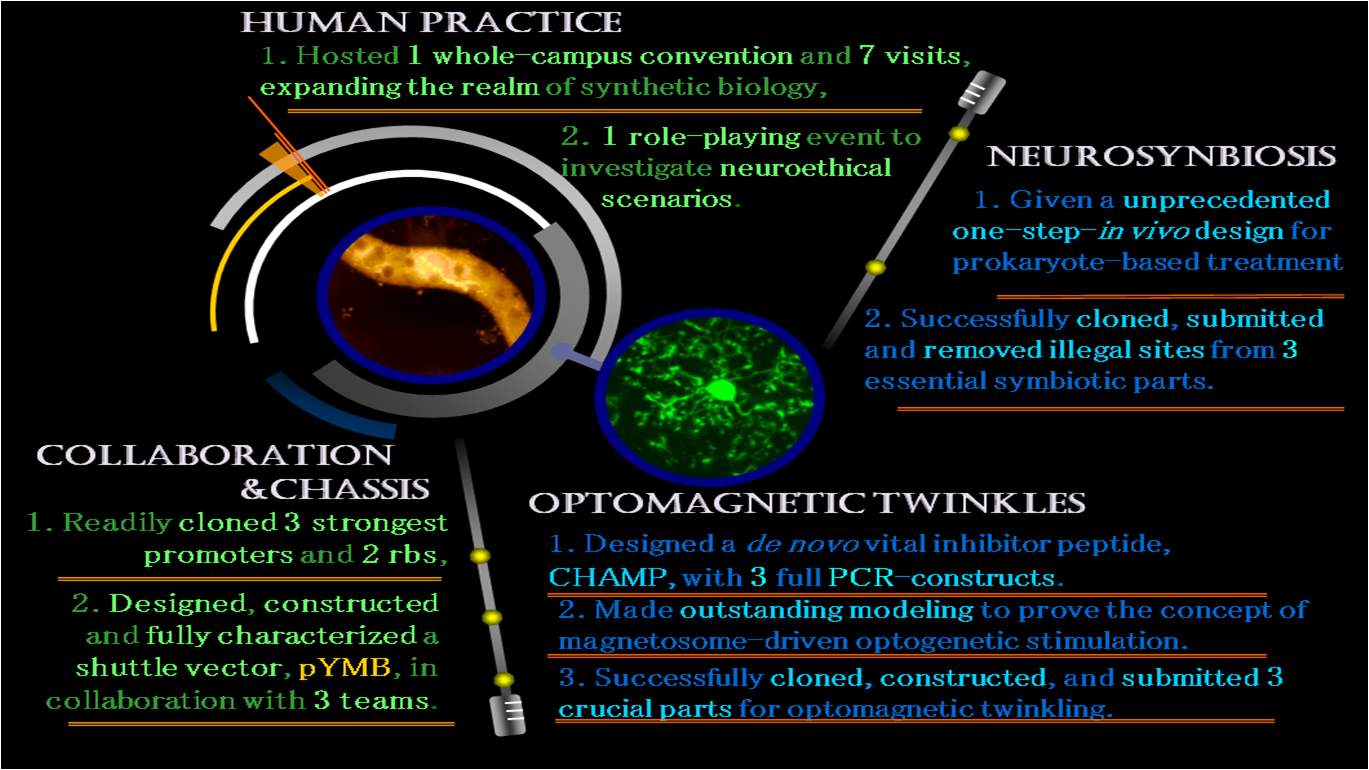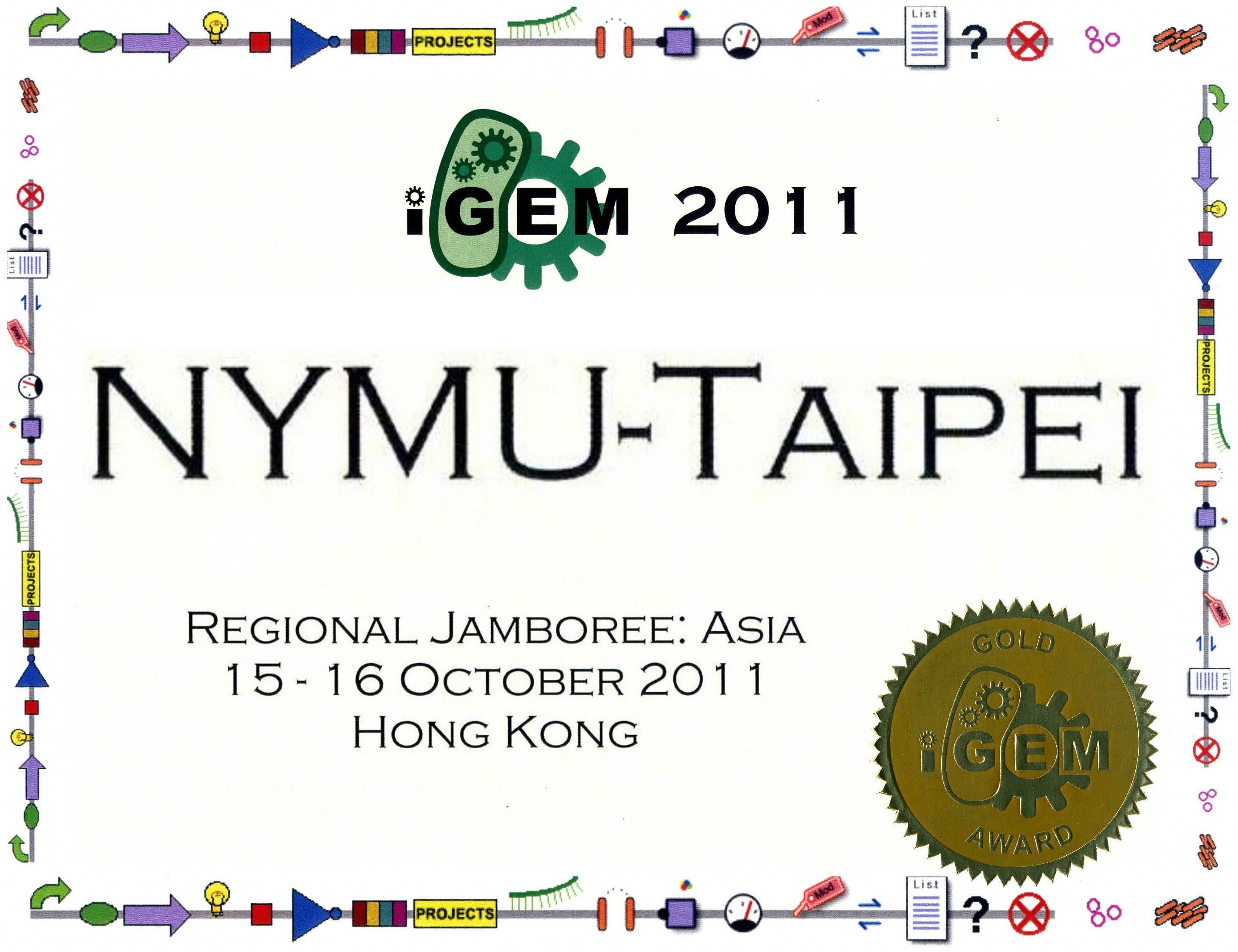Team:NYMU-Taipei
From 2011.igem.org
(→Our institute) |
|||
| Line 54: | Line 54: | ||
<center>[[file:nymutaipei2.jpg|400px|]]</center> | <center>[[file:nymutaipei2.jpg|400px|]]</center> | ||
| - | + | <center>[[file:sponsor.png]]</center> | |
<html> | <html> | ||
Revision as of 21:13, 28 October 2011

Contents |
Tailoring Your Avatar
Goal
Create wireless neuro-stimulator, focusing on achieving remote neuro-stimulation to minimize invasion and damage to the neuron.
Why do we want to do that?
Optogenetics, the latest neuroscientific method, has improved specificity for stimulating certain cell types of neurons, reversible bi-directional stimulation, and elevated spatiotemporal precision. However, to achieve neuronal network stimulation, light cables are still needed, leaving long-standing annoying issues regarding immune responses unresolved.
Specific aims
(1) Wireless stimulation for neurons
(2) Minimization of neuro-immuno response
Our design
To achieve this goal, we use a species of magnetic bacterium, Magnetospirillum magneticum AMB-1. We have chosen mms13, a transmembrane protein as our target for protein design in this bacterium, as it serves as a linker between reception of wireless magnetic field and optogenetic neuro-stimulation output. Regarding the neuroimmune response, we have utilized three genes to achieve neurosymbiosis within glial cells: MinC, a division inhibitor, INV, a gene for invasion and LLO, a gene for facilitating escapes from phagosomes.
Our design is made up of the following two devices:
Bridging magnetics and optogenetics.
Enabling magnetotactic bacteria to be neurosymbiosis with glia cells.
Summary of Achievements

Our institute
- The official web sites of our school - National Yang Ming University (NYMU):
- [http://web.ym.edu.tw/front/bin/home.phtml in Chinese]
- [http://nymu-e.web.ym.edu.tw/front/bin/home.phtml in English]
- Follow the two links below to see The Beauty of NYMU
- [http://issue.ym.edu.tw/cia/new/ Take a panoramic scenery view of our university]
- [http://issue.ym.edu.tw/cia/new/tw/ym720.html Take a tour of our university]


 "
"









